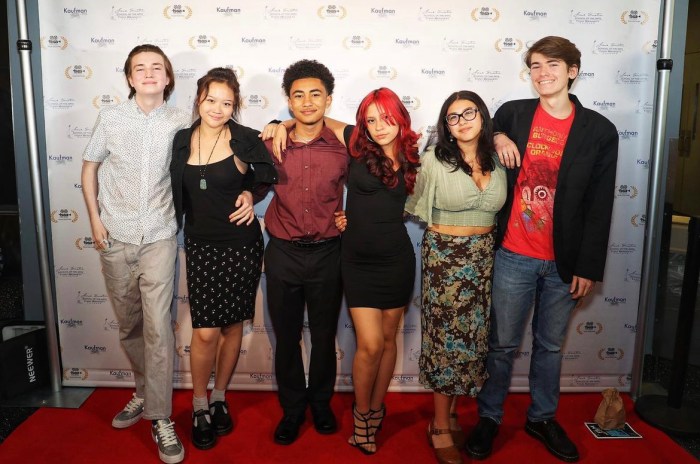By Arlene McKanic
Ileana, the protagonist of Irina Eremia Bragin’s “Vine Tata,” is her father’s daughter. Both are headstrong and outspoken, and some would even call them troublemakers. It doesn’t matter that they’ve been separated for much of her life. He’s a Romanian dissident, now free to leave his country after the fall of the ghastly Ceaucescu, and she’s a California writerâ„housewife with a typical stressed−out upper−class American family. But when they meet again, they connect as though they’ve never been apart.
Of course, the consequences of their outspokenness aren’t really comparable. Ion spent years in jail and lost his family, while Ileana’s family faces social ostracism by folks they might not want to hang out with in the first place.
Bragin gives us people who are easy to love and so lets them, and the audience, off the hook a bit. The one really terrible thing that happens to Ileana’s family in America happens to them only tangentially. Ion’s long Romanian ordeal hasn’t broken him, nor even made him idiosyncratic or difficult to understand or live with. He’s one of those rare resilient people whose suffering imparts deep wisdom, and Robert Zukerman brings much warmth to the role; his relationship with his granddaughter is one of the play’s joys.
Gloria Hodes is also excellent as Marianna, the tough and vivacious wife he divorced to save her. She still loves him, though she’s remarried. Rita Rehn’s Ileana is good−hearted, a little neurotic, and, as she’s Ion’s daughter, undeterrable. She will write that article exposing the intolerable burdens of her daughter’s school friends, despite the social cost. And she will translate and publish her father’s writings from jail, even if her uptight husband Mike disapproves and threatens their marriage.
Mike is uptight indeed, and obsessed with his own success as a doctor and his daughter’s success as a student. If anyone resents Ion’s presence in their home, it’s him, but only lightly; Ileana seems to get on so much better with her father than her husband for the time being. Still, Mike, as played by Jon Krupp, is essentially good−hearted and loving.
Rachel Viola gives a fine performance in the dual role of the couple’s daughter Lisa and a younger Ileana back in Romania, who rejected her beloved father for his absences simply because she was too young to understand why they had to happen. Leah Jacobs is heartbreaking as Lisa’s friend Kim, who caves in to one demand too many.
Tom Rowan’s direction helps even the rougher parts of the story go down easily. Mark Bloom’s clever set design mostly evokes an upscale Los Angeles house, but empty picture frames suspended from the flies show flashbacks from Ileana, Marianna and Ion’s time in Romania. Bloom is helped in this by Diana Kesselschmidt’s lighting and Joshua Higgason’s sound design. A shawl or a ratty coat thrown over Viola’s or Hode’s shoulders also let the audience know we’re behind the Iron Curtain — kudos to Adam Coffia’s costume design.
Part of the Immigrant Voices Project, “Vine Tata” (“Daddy’s Coming”) was showcased at the newly renovated Queens Theatre in the Park in Flushing Meadows Corona Park earlier this month.

































